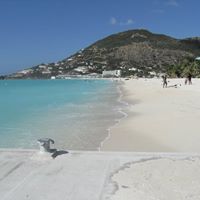Which European capital was known as Tiflis until 1936?
Tbilisi, in some countries also still known by its pre-1936 international designation Tiflis, is the capital and the largest city of Georgia, lying on the banks of the Kura River with a population of approximately 1.5 million people. Founded in the 5th century AD by Vakhtang I of Iberia, since then Tbilisi served as the capital of various Georgian kingdoms and republics. Between 1801 and 1917, then part of the Russian Empire, Tbilisi was the seat of the Imperial Viceroy, governing both Southern and Northern Caucasus.
The name Tbilisi derives from Old Georgian t′bilisi. The name T′bili or T′bilisi (literally, "warm location") was therefore given to the city because of the area's numerous sulphuric hot springs. Until 1936, the name of the city in English and most other languages was Tiflis, while the Georgian name was ტფილისი (Tpilisi).
On 17 August 1936, by order of the Soviet leadership, the official Russian names of various cities were modified to more closely match the local language. In addition, the Georgian-language form T′pilisi was modernized on the basis of a proposal by Georgian linguists; the ancient Georgian component ტფილი (tpili, "warm") was replaced by the newer თბილი (t′bili). This form was the basis for a new official Russian name (Тбилиси Tbilisi). Most other languages have subsequently adopted the new name form, but some language such as Turkish, Persian, Greek, and German have retained a variation of Tiflis.
More Info:
en.wikipedia.org





